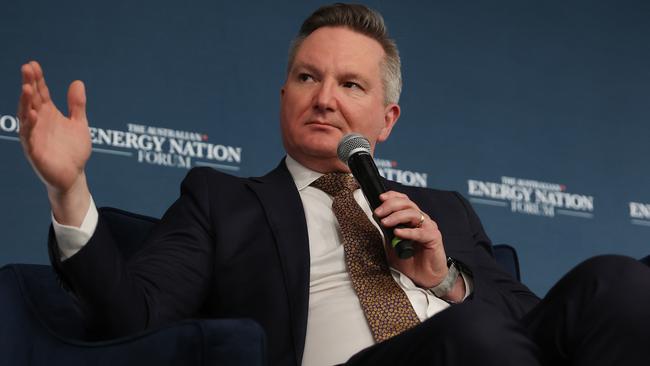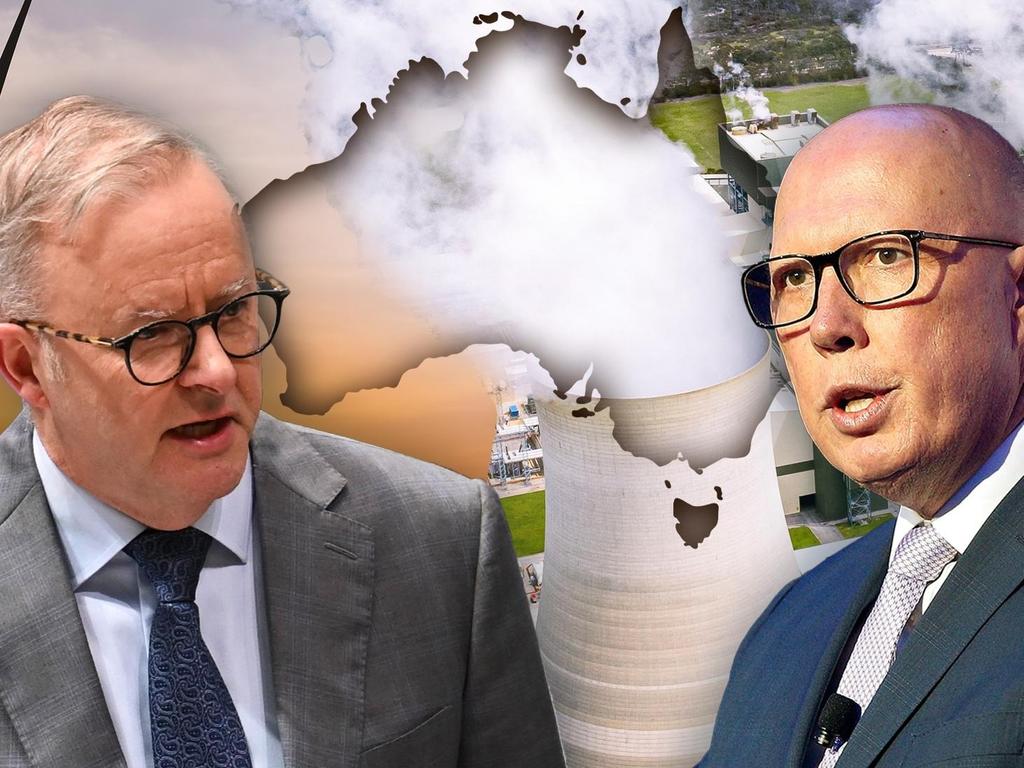Chris Bowen sticks with $275 power bill relief election promise
Chris Bowen suggests Labor’s $275 power bill reduction promise could still be achieved as Allegra Spender declares the Coalition’s climate and energy policy ‘more problematic’ in hung parliament scenario.

Chris Bowen has refused to walk away from Labor’s election promise to reduce electricity bills by $275 from 2025, while a key independent MP declared the Coalition’s climate and energy policy would be “more problematic” in deciding which major party to support in the event of a hung parliament.
Addressing The Australian’s inaugural Energy Nation forum on Wednesday, the Climate Change and Energy Minister also backed local miners exporting thermal and metallurgical coal to key Asian and other trading partners for as long as demand remained.
Despite falling short on Labor’s 2022 election promise to cut household power bills by $275 from next year, Mr Bowen said the Albanese government was still committed to reducing energy costs.
The modelling also promised to cut bills by $378 from 2030.
“Every modelling is an exercise. It was modelling about the impact of our policy now. We’re not walking away from our ambition to reduce energy prices by getting more renewables into the system,” Mr Bowen said.
“It was modelling for 2025 and 2030. We’re not at 2025, we’re not at 2030. And it was modelling of a policy that we are sticking with.

“We’re sticking with that ambition … We are seeing the impacts now of getting more renewables into the system and the coal and gas caps that we had to put in place as a result of the war in Ukraine in the last default market offer. For the first time in a long time, energy prices are coming down. That’s a good thing.”
Amid booming exports of thermal coal volumes to China, Japan, South Korea and other Asian nations using coal-fired power stations, Mr Bowen said he supported Australia being a reliable trading partner.
He said China was building more renewables than the rest of the world combined.
“China’s emissions have either peaked or are about to peak, we don’t quite know yet,” he said. “Of course, yes, they’re going to need coal for some time to come because their energy needs are going up dramatically.
“I want Australia to be a renewable energy superpower and to export a lot of renewable energy. You don’t do that by cutting off traditional supplies and attacking your own credibility as a reliable energy supplier … We work with other countries, Japan, Korea, Germany, for example, on replacing their needs to create hydrogen over time but fulfilling their needs in the meantime as a reliable partner.”
Teal MP Allegra Spender, who represents the once blue-ribbon Liberal seat of Wentworth, said neither of the major parties climate policies was “frankly good enough” to sway who she would support in the event of a hung parliament.
“Though I would say the Coalition’s policy at the moment is extremely problematic, because I think it’s not going to deliver on the science and what we need to do from actually trying to avoid the natural disasters and the impact on our kids (from climate change),” she said.
“For me, this is about negotiation if it ever comes to (minority government), because that’s what my community is interested in. They’re pretty business-focused and they’re very environmentally focused. They say we have to deliver on the science, we have to deliver on the economy and, frankly, we need to do this with the whole country.”
Nearly two weeks after Peter Dutton vowed to oppose Labor’s 2030 emissions reduction target of 43 per cent, Nationals leader David Littleproud doubled down on his declaration that the Coalition would pursue alternative energy sources so it didn’t have to use large-scale renewables. He said the Coalition’s nuclear plan would ensure “there’ll be less” of large-scale renewables projects.
Assistant Climate Change and Energy Minister Jenny McAllister said a plan to delay, pause or stop large-scale renewable projects from being developed was “really risky”.






To join the conversation, please log in. Don't have an account? Register
Join the conversation, you are commenting as Logout